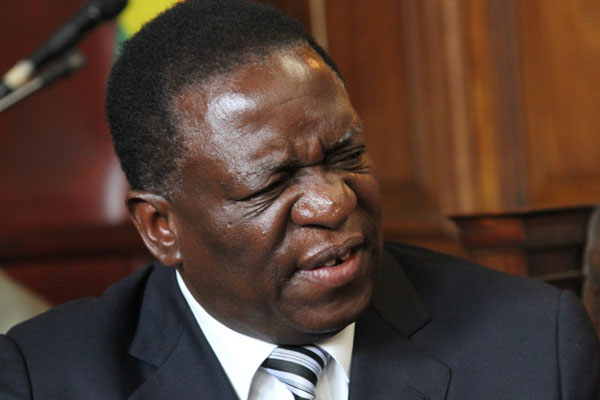The only way to remove Zanu PF from power is to outvote them in the local government and parliamentary elections, ZAPU secretary-general Mthulisi Hanana has opined.
Hanana noted that the ruling party is better organised than the opposition as it has the capacity to field candidates in each ward throughout the country.
Therefore, to defeat Zanu PF at the national elections, people must not vote for its councillors or members of parliament (MPs) in order to weaken its structures.
In the 2018 elections, Zanu PF won over 50 local authority seats unopposed while the opposition parties failed to field candidates in all the vacant wards.
“We had a lot of parties contesting, had an alliance made up of seven political parties yet Zanu still had almost 60 local authority seats, won uncontested from five provinces, which means we are scrambling for the same thing,” said Hanana in an interview on Uncensored with Mzala Tom held on Twitter Spaces.
Hanana said people had to grasp that to defeat Zanu PF, they must reject all of its candidates, from councillors all the way to the president.
“You must understand one of the lies people have believed is they are able to remove Zanu at the top, our problems will be solved but people don’t realise the party will stay unless and until we get a point to say a Zanu councillor or an MP is as bad as a Zanu president,” he said.
“We must have people voting for the opposition down there and not only voting for the opposition at the top so that when it comes to electoral infrastructure, it can give the opposition ultimate victory and win. In 2018, Nelson Chamisa had about 45 percent of the total presidential vote but when it came to the Parliament, he only had 34 percent. This shows the agenda of removing Zanu is being taught wrongly, we should be removing it from the grassroots,” said the ZAPU SG.
Hanana pointed out that the fact the ruling managed to field candidates everywhere showed it was organised.
“Zanu has been doing this well apart from rigging. It has structures, there is no ward where it doesn’t contest as it has a presence. Zanu is organised, yes it has state resources to do so but if we don’t have resources as the opposition, let’s make sure we don’t spread ourselves thin but focus on different areas,” he said, stressing that the “area of politics in Zimbabwe is rural areas, all political parties must be going there and coalitions or alliances must know this.”
“This must be the basis of coalescing as parties to say all of us are not fielding candidates everywhere so what must we do. In order not to spread ourselves thin, parties must say ZAPU focus on this area, or CCC (Citizens Coalition for Change) field there.”
The ZAPU SG added the opposition must not just fight in urban centres where they already had a significant amount of support but had to take the fight to Zanu’s backyard, the rural areas.
“If you look at 2018, the MDC has not done well in Mashonaland, Midlands and did not win Matabeleland South, it shows where its weakness is from the vote tally. It’s high time we eat into Zanu votes,” Hanana said.
“As ZAPU we have gone to Matabeleland South, the Zanu stronghold, built structures and we have a membership of over 20 000. We have gone to Zanu’s strongmen, the veterans who were killing people during the elections and said it is un-ZAPU to kill, go and apologise to victims, pay a goat for what you have been doing under guise of Zanu.”
Hanana also explained that if opposition parties worked together and ultimately controlled the Parliament, a president from the ruling would be forced to work with the opposition to make policies.
“Say Mnangagwa wins the presidency but 50 percent of Parliament is controlled by the opposition, whoever wins must start talking to the next person. This is how we must make progress,” said the ZAPU SG, adding these were systems that alliances between political parties must address.
“The problem with alliances is it doesn’t build institutions but builds individuals. As long as we don’t have institutions, we will suffer heavy losses. The most important thing is we must appreciate we need each other to build strong mechanisms, not a strong individual or personality cult.”

